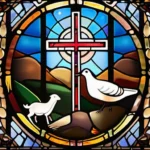Explore the fundamental beliefs, practices, and unique aspects of Islam in this comprehensive guide.
Islam is one of the world’s major religions, with over 1.8 billion followers worldwide. In this article, we delve into the key beliefs, practices, and unique aspects that define Islam as a religion. From the Five Pillars to the importance of the Quran and Hadith, join us on a journey to understand the essence of Islam.
The Foundation of Islam: The Five Pillars
The Foundation of Islam: The Five Pillars
Imagine building a sturdy house; each pillar represents a cornerstone that supports its structure. In Islam, these five essential practices are like those pillars—they hold up the spiritual edifice of every Muslim’s life. What exactly are these pillars? Let’s delve into them.
- Shahada: The declaration of faith is often likened to planting a seed in the heart. Once uttered, it signifies a deep-rooted commitment to believing in one God and accepting Muhammad as His messenger. This simple statement can have profound consequences, like watering that seed until it grows into a strong tree of belief.
- Salat (Prayer): Praying five times a day is akin to maintaining a regular workout routine—keeps the spiritual muscles toned and strong. These prayers are not just about reciting verses; they’re a means of communicating with God, offering gratitude for daily blessings and seeking His guidance.
- Zakat (Charity): This pillar can be seen as the act of sharing what you have with those in need. It’s like a river that keeps flowing—it only swells when it shares its bounty with other streams. Giving zakat purifies one’s wealth and helps build a compassionate community.
- Sawm (Fasting): During Ramadan, Muslims fast from dawn till dusk. This practice is much more than abstaining from food; it’s like fasting from negative thoughts and words. It teaches discipline and empathy by experiencing the struggles of those who go hungry each day.
- Hajj (Pilgrimage): Every able-bodied Muslim must make a pilgrimage to Mecca at least once in their lifetime. This journey is a metaphorical walk through history, reconnecting with the faith’s roots and symbolizing submission to God. It’s like tracing your family tree back to its origins, finding strength in shared ancestry.
These five pillars are not just commands but opportunities for growth, reflection, and community building. Each one is a unique path that leads to the heart of Islam.
The Quran: The Sacred Text of Islam
The Quran, the holy book of Islam, stands as a towering beacon of guidance and inspiration for Muslims worldwide. Imagine it as a lighthouse that guides ships through treacherous waters; without its light, they might founder. The word ‘Quran’ itself means ‘recitation,’ emphasizing its oral tradition before being written down.
But how did this sacred text come to be? It’s said that the Prophet Muhammad received revelations from Allah through the angel Gabriel over a period of 23 years. These revelations, compiled into chapters known as surahs, were memorized by his companions and eventually written in their entirety. The structure of the Quran is quite unique; it’s not organized chronologically but rather by theme and length.
Each surah begins with an introductory verse known as al-Basmalah, which says ‘In the name of Allah, the Merciful, the Compassionate.’ This opening serves as a reminder to seek guidance from the divine. The longest surah is Surah Al-Isra, and the shortest, Surah Kauthar.
The Quran covers a wide range of topics, from the nature of faith and morality to historical events and ethical principles. It serves as both a spiritual guide and a legal code for Muslims, providing comprehensive instructions on how to live a righteous life. Every word in the Quran is believed to carry profound meaning, with each verse having multiple layers of interpretation.
Understanding the significance of the Quran isn’t just about reading its verses; it’s about internalizing their messages. For many Muslims, studying and reciting the Quran is not only a religious duty but also a source of comfort and solace in times of difficulty. How do you think these teachings influence daily life?
The depth and breadth of the Quran make it an ever-relevant text for understanding Islam’s core beliefs and practices. Just as the roots of a tree sustain its growth, so too does the Quran provide the foundation upon which Islamic practice is built.
The Hadith: Traditions of the Prophet Muhammad
Imagine Islam as a vast garden, where every plant and flower represents a belief or practice. At the heart of this garden stands The Hadith, a living stream that irrigates the roots of faith and shapes daily life. Just as water is essential for plants to thrive, Hadith provides direction and guidance for Muslims, explaining how to interpret the teachings of their prophet.
So, what exactly are these Hadith? They are sayings, actions, or tacit approvals of the Prophet Muhammad, recorded by his companions. These accounts form a crucial part of Islamic law, offering a wealth of information on how to live according to the teachings of Islam. Think of them as the whispered secrets of a wise elder, passed down through generations.
Why are Hadith so important? They fill in the gaps left by the Quran, providing practical examples and scenarios that clarify its verses. In essence, they act like a bridge between the abstract teachings of the Quran and everyday life. How can we know how to pray if not for the descriptions found in Hadith about the Prophet’s daily routine?
Imagine walking through this garden with a map marked by these Hadith. Each step, each action, is guided by the wisdom contained within them. From performing ablutions before prayer to conducting business transactions fairly, every aspect of Muslim life can find its roots in these narrations.
The importance of Hadith extends beyond legal and practical matters; it also enriches the spiritual life of Muslims. Stories from the Prophet’s life serve as inspirations for acts of kindness, forgiveness, and compassion. These tales are like the sun that warms the soil, nurturing growth and goodness in the hearts of believers.
Islamic Beliefs: The Six Articles of Faith
Understanding Islam: Key Beliefs and Practices
Have you ever wondered about the fundamental beliefs that guide millions of people around the world? These beliefs, often referred to as the six articles of faith, are at the core of Islamic practice. Let’s delve into each one to understand their significance.
- Belief in Allah: This is perhaps the most fundamental belief for Muslims. Do you ever ponder about the ultimate power that created and governs the universe? For Muslims, Allah, which translates to ‘God,’ is seen as the one and only deity who deserves worship and reverence. He is the sustainer of all creation and is believed to be beyond human comprehension.
- Belief in Angels: Angles are often depicted as messengers or servants of Allah. Have you ever imagined beings that are solely devoted to carrying out God’s commands? Angels play a crucial role in Islamic tradition, with their existence serving as proof of divine presence and intervention in the world.
- Belief in Prophets: The prophets of Islam include figures like Adam, Noah, Abraham, Moses, Jesus, and Muhammad. Is it not intriguing to think about messengers who communicated God’s message throughout history? These prophets are seen as role models for humanity, each conveying the same core messages of monotheism and moral responsibility.
- Belief in the Holy Book (Quran): The Quran is considered the word of Allah, revealed to Prophet Muhammad through the angel Gabriel. How many times have you pondered over the significance of a book that has shaped the lives of billions? Muslims believe it as the ultimate source of guidance and wisdom, guiding them on how to live a righteous life.
- Belief in the Day of Judgment: This belief instills a sense of accountability and responsibility. When you reflect on your actions, do you ever think about their consequences beyond this lifetime? The Day of Judgment symbolizes the ultimate reckoning, where every individual will be judged for their deeds.
- Belief in Destiny (Qadar): This belief teaches that everything happens by the will of Allah. Do you sometimes wonder how much control humans have over their destiny? Muslims believe that while they make choices, it is ultimately Allah who has ordained the course of events. This belief encourages submission and acceptance.
These six articles form the foundation upon which Islamic faith stands. Each one interlocks with the others to create a cohesive framework for understanding life’s purpose and meaning.
Islamic Practices: Prayer, Fasting, Alms-Giving, and Pilgrimage
Islamic Practices: Prayer, Fasting, Alms-Giving, and Pilgrimage
Have you ever wondered how Muslims stay connected to their faith on a daily basis? The answer lies in ibadat, or worship practices. These rituals serve as a constant reminder of the Lord’s presence in every aspect of life. Let’s delve into some of these practices, starting with prayer.
Prayer is more than just reciting verses; it’s a conversation with Allah. Five times a day, Muslims face the Kiblah, symbolizing their unity and direction toward God. Each prayer session involves a series of movements—standing, bowing, prostrating—that are both physical and spiritual exercises, strengthening one’s connection to the divine.
But what about those times when food is scarce? Fasting during Ramadan becomes more than just abstaining from eating; it’s a journey of self-restraint. Imagine fasting not just for your health but as a form of spiritual cleansing, reflecting on one’s actions and seeking forgiveness. It’s like putting your life in pause to focus entirely on God.
Next comes the practice of almsgiving, or Zakat. This is not just about giving; it’s an act of purifying wealth and ensuring that resources are distributed equitably. By giving away a portion of one’s income, Muslims contribute to a communal good, emphasizing compassion and generosity in their daily lives.
The ultimate journey for many Muslims is the Hajj, the pilgrimage to Mecca. This annual event involves walking in the footsteps of prophets, performing rituals at significant sites such as the Kaaba. It’s a symbol of unity and submission, where pilgrims leave behind their worldly possessions, symbolizing the journey from this life to the next.
These practices are not just obligations; they’re a way of life that shapes every aspect of a Muslim’s existence. Through prayer, fasting, almsgiving, and pilgrimage, Muslims maintain a spiritual balance, staying rooted in faith while navigating their daily lives. Each act is like planting a seed that grows into a deeper understanding of the divine.
The Impact of Islam on Culture and Society
How does one begin to understand the profound impact that Islam has had on culture and society? For centuries, Islamic beliefs and practices have woven themselves into the very fabric of human expression, shaping art, literature, architecture, and social structures in ways that continue to resonate today. Let’s explore how these influences have transformed various aspects of life.
Imagine a canvas where history paints its story; Islamic art is akin to the intricate patterns found on this canvas. From calligraphy to geometric designs, each stroke tells a tale of spiritual devotion and artistic mastery. The Mosque of Cordoba, for example, stands as a testament to how architectural beauty can be a reflection of faith. Its horseshoe arches and ornate decorations not only awe visitors but also symbolize the interwoven nature of religion and art.
But Islamic influence extends beyond visual aesthetics into the realms of literature and poetry. Think about the Sufi poets who used their works to delve deep into spiritual experiences, often through metaphorical language that mirrored the richness of natural landscapes. These verses not only offered solace but also sparked intellectual debates, enriching the cultural tapestry with layers of philosophical depth.
In social structures, Islamic practices have been instrumental in shaping communities. The ummah, or Muslim community, has fostered a sense of global unity and shared responsibility. Laws based on Shariah not only provide guidelines for personal conduct but also ensure fair treatment within society. These legal frameworks aim to create an environment where justice prevails, much like how the branches of a tree support its life.
The impact of Islam on culture and society is multifaceted, with each aspect interdependent and interconnected. From the grandeur of architecture to the subtle nuances of literature, these elements have collectively contributed to a rich heritage that continues to inspire and influence the world in myriad ways. As we delve deeper into this exploration, it becomes clear that understanding Islam’s role in shaping history is essential for comprehending the broader context of human civilization.
Conclusion
 Islam is a rich and diverse religion with a profound impact on its followers’ lives. By understanding its key beliefs and practices, we gain valuable insights into the worldview and traditions of Muslims around the globe.
Islam is a rich and diverse religion with a profound impact on its followers’ lives. By understanding its key beliefs and practices, we gain valuable insights into the worldview and traditions of Muslims around the globe.











